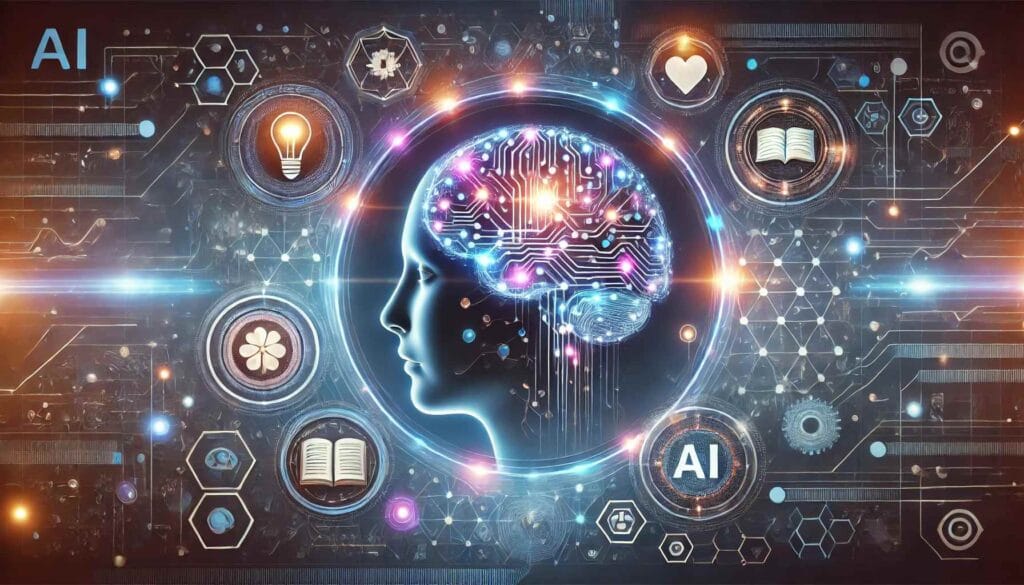How AI Can Be Used to Enhance Cognitive Skills

Artificial Intelligence (AI) has made significant advancements in recent years, impacting various fields from healthcare to entertainment. One of the most promising areas where AI can play a critical role is in enhancing cognitive skills. Cognitive skills refer to the mental capabilities used in learning, memory, reasoning, problem-solving, and attention. AI technologies can be harnessed to boost these skills in multiple ways, from personalized learning tools to applications designed to improve memory and focus.
1. Personalized Learning Tools
AI-based systems can provide personalized learning experiences tailored to individual needs. Traditional education often follows a one-size-fits-all approach, but AI can adapt content and learning methods based on a person’s progress and learning style. Machine learning algorithms analyze a learner’s behavior and performance to identify strengths and weaknesses, enabling the AI to recommend the most effective strategies or exercises.
For example, platforms like Duolingo and Coursera use AI to adapt courses to suit a learner’s pace, difficulty tolerance, and prior knowledge. In doing so, these tools help improve cognitive skills such as critical thinking, language acquisition, and problem-solving.
2. Brain Training Apps
Brain training apps, such as Lumosity and Peak, offer a variety of games designed to stimulate cognitive functions like memory, attention, speed of processing, and logical thinking. These apps use AI to customize the exercises based on a user’s cognitive profile, ensuring that the tasks remain challenging but achievable. By consistently engaging with these exercises, users can improve their memory, attention span, and even their creativity and reasoning abilities.
AI algorithms track user progress and adjust difficulty levels to provide the most optimal challenge for each individual. This personalized approach maximizes cognitive benefits and can lead to long-term improvements in brain function.
3. Improving Memory and Retention
AI-powered tools such as spaced repetition systems (SRS) can significantly improve memory retention. SRS algorithms work by presenting information at increasing intervals, allowing the brain to reinforce memory over time. Tools like Anki and SuperMemo use AI to determine the optimal time intervals for reviewing information, ensuring that it remains fresh in the memory.
This method has been particularly beneficial for learning new languages, complex concepts, or even for improving general recall. AI enhances the learning process by making it more efficient and helping users retain information for longer periods.
4. Mindfulness and Focus Enhancement
AI is also being used to develop applications that support mindfulness and focus. Tools such as Headspace and Calm use AI to create guided meditation sessions based on a user’s stress levels and emotional state, which can help in reducing anxiety and improving focus. Additionally, AI-based productivity tools like Focus@Will utilize machine learning to generate music that enhances concentration based on the user’s preferences and needs.
By helping individuals maintain mental clarity and reducing distractions, these tools can strengthen attention and cognitive control, which are vital for effective problem-solving and learning.
5. Virtual Coaching and AI Tutors
One of the most exciting developments in AI is the use of virtual tutors and coaches. These AI systems can provide feedback on cognitive exercises, recommend new areas for improvement, and guide users through complex tasks. AI-powered virtual tutors like Squirrel AI and Carnegie Learning are already being used in educational settings to provide one-on-one tutoring experiences. These systems use AI to identify gaps in a student’s understanding and deliver personalized lessons to address these weaknesses.
With the support of an AI tutor, learners can engage with complex problems at their own pace, receive targeted feedback, and enhance their problem-solving abilities. This level of personalized support fosters growth in cognitive skills like reasoning, analysis, and creativity.
6. Detecting Cognitive Decline
AI is also being used in the healthcare sector to detect early signs of cognitive decline, such as in Alzheimer’s disease or dementia. AI algorithms analyze speech patterns, facial expressions, and other biomarkers to identify subtle changes in cognitive function. Early detection allows for timely intervention, which can slow down cognitive decline and improve quality of life for individuals.
Tools such as BrainCheck and CogniFit are examples of AI-driven platforms that monitor cognitive health and provide personalized exercises designed to maintain mental acuity. These tools can serve as preventive measures and offer cognitive enhancement exercises to delay cognitive aging.
Conclusion
AI is rapidly becoming an essential tool in the quest to enhance mental and cognitive skills. By offering personalized learning experiences, improving memory retention, enhancing focus, and providing virtual tutoring, AI can support individuals in developing a wide range of cognitive abilities. Moreover, it holds promise for addressing cognitive decline and maintaining mental sharpness well into old age.
As AI continues to evolve, its potential for improving cognitive skills will only grow, helping individuals optimize their mental performance and lead more fulfilling, productive lives.
Source : Medium.com




